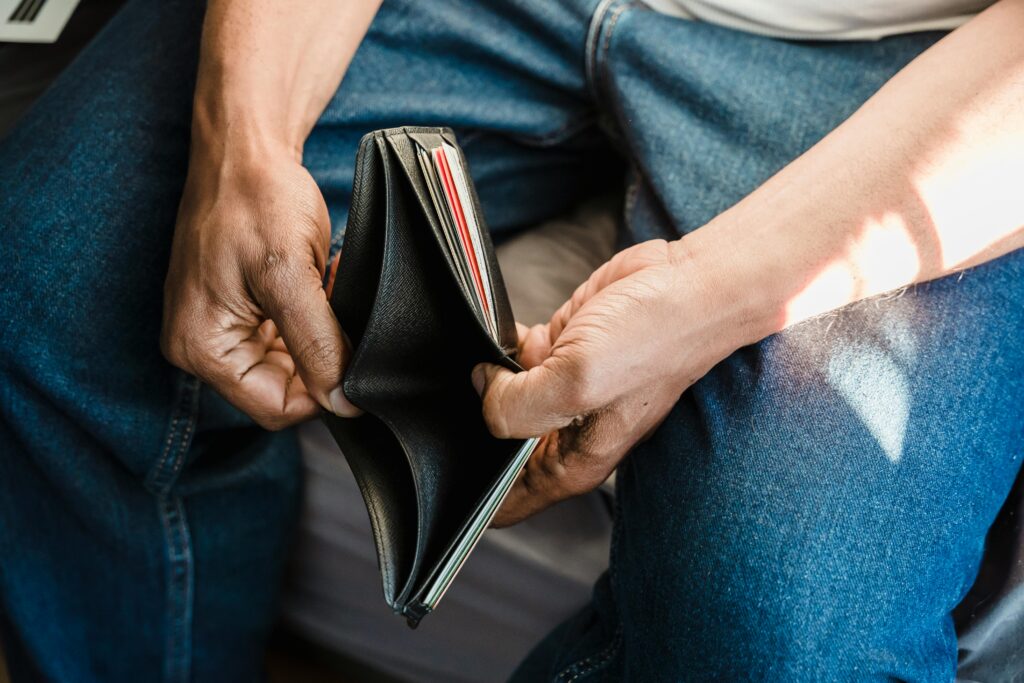The phrase “It’s expensive to be poor” is a cliché, but it’s one that rings truer than ever in today’s world and economy. While many people associate poverty with a lack of material possessions, the reality is that it’s a complex web of financial burdens that can be overwhelming.
The High Cost of Essential Services
One of the most significant hidden costs of poverty is the exorbitant fees associated with essential services. For example, people living in poverty often have to pay a premium for utilities like electricity and water. Late and overdraft fees, check cashing fees, disconnection charges, and reconnection fees can quickly spiral out of control, making it difficult to stay current on bills and monthly obligations.
Additionally, transportation can be a major cost burden for those struggling financially. In most cases, people and organizations tend to focus on food and shelter needs, leaving out this very important need. Public transportation can be expensive, especially if it’s necessary to make multiple transfers or travel long distances and especially when we are also considering the size of a family utilizing these services. For those who don’t have access to public transportation, owning a car can be a financial strain due to the costs of fuel, insurance, maintenance, and repairs.
The Debt Cycle
Another major challenge faced by people living in poverty is the debt cycle. Once someone falls behind on bills, it can be difficult to catch up. Late fees, interest charges, and collection fees can quickly accumulate, making it seem like an impossible task to climb out of debt.
Payday loans and other high-interest loans only provide temporary relief but often come with exorbitant interest rates and fees. Once a person has started this cycle, they tend to be faced with it until they can address it, typically once a year when a tax refund arrives in the mail. This can create a vicious cycle where people are forced to borrow more money just to pay off their existing debts, not to mention the stress and mental anguish it causes.

Limited Access to Opportunities
Being broke can also limit access to opportunities that can help improve one’s financial situation. For example, people living in poverty may have difficulty getting a job due to a lack of transportation, childcare, or appropriate clothing. They may also be unable to afford education or training which could lead to higher-paying jobs.
Additionally, people living in poverty may be more likely to make poor financial decisions due to stress and lack of financial education. This can include impulsive spending, gambling, and other risky behaviors that can further exacerbate financial problems.
The Psychological Toll
The financial burdens associated with poverty can take a significant toll on mental health. Stress, anxiety, and depression are common among people who are struggling financially. These emotional challenges can make it difficult to focus on work, maintain relationships, and make sound financial decisions.
Let’s talk about how to break the cycle and generational curses that so many of us have experienced or seen many of our loved ones deal with.
Breaking the Cycle of Poverty
While the challenges faced by people living in poverty can seem insurmountable, there are steps that can be taken to break the cycle. These include:
- Seeking financial assistance: Government programs like food programs, utility assistance, housing assistance, and Medicaid can provide much-needed support.
- Setting Goals: Create goals to establish a plan that will help move the wealth needle.
- Getting financial education: Learning basic financial skills can help people make better decisions about budgeting, saving, and borrowing. Take advantage of reading up on, watching, and attending financial and wealth-building seminars.
- Building credit: Establishing a good credit history can make it easier to obtain loans and credit cards with lower interest rates. Work with available non-profits that assist with credit-building plans.
- Advocating for policy changes: Supporting policies and candidates who address income inequality and provide opportunities for economic mobility can help to reduce poverty and its associated costs.
Breaking free from poverty requires a multifaceted approach that addresses both the financial and emotional challenges involved. By understanding the hidden costs of being broke, individuals and communities can work together to create a more equitable and just society.
Disclaimer: This article is an information piece, written to provide a basic exploration of the topic. The experiences, statistics, and anecdotes are illustrative and may not reflect the exact experiences of every individual.


